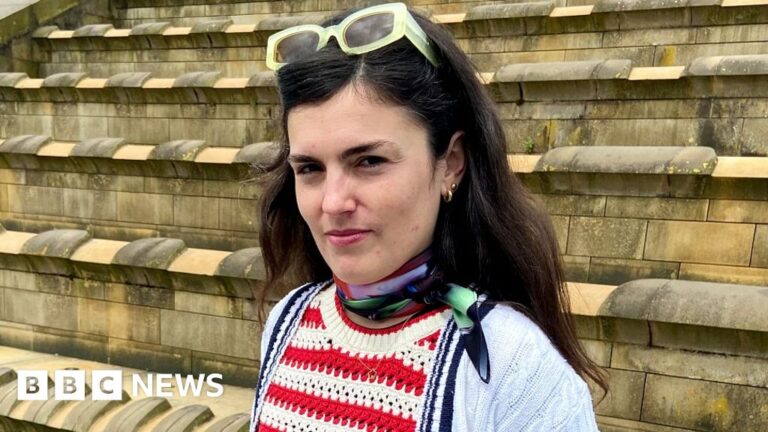By Steven McIntosh, Entertainment journalist
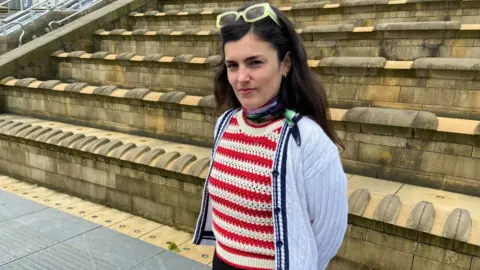 BBC
BBCWhen hackers threatened to leak a filmmaker’s nude photos stored on her stolen laptop, she turned the cameras on herself to document her ordeal.
Spanish director Patricia Franquesa was sitting in a Madrid cafe when thieves made off with her laptop in 2019.
Three months later, hackers contacted her demanding money, threatening to release intimate photos she had stored on the device if she did not pay.
Franquesa didn’t know for sure – and still doesn’t know – if the person trying to extort her was the same person who physically stole the laptop.
But in a situation where victims have so little control, Franquesa was able to film the entire episode from her perspective as it unfolded.
The result is My Sextortion Diary, which has just been screened at the Sheffield Documentary Festival.
“Making a documentary was my way of taking a little bit of control and power,” Franquesa told BBC News. “It was my way of protecting myself, not victimizing myself and giving myself some dissociation, it was like building a bubble.”
The distance provided by making the film was valuable and also helped her understand what was happening. “It’s still me of course, but I needed to separate myself. I was talking about ‘Pati,’ but there’s Pati the character and Pati the director.”
She jokes that it’s fitting that such an ordeal “has happened to someone who makes documentaries, so it’s the perfect opportunity to get (the cameras) rolling.”
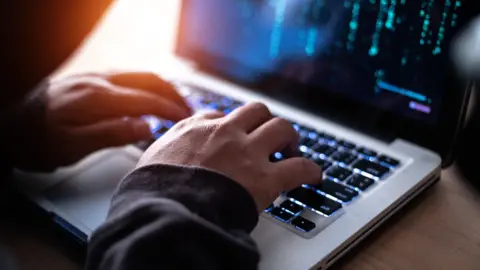 Getty Images
Getty ImagesTaking, storing and sending nude photos is completely normal for an entire generation who grew up with the Internet.
But this opens up a whole world of risks that people born in previous decades never faced.
“My father took pictures of my mother in a swimsuit that might have been a little see-through,” smiles Franquesa, recalling an era that seems tame in comparison. “But since the digital world came to us, this is our new way of having privacy.”
In his case, the hackers showed how serious they were by leaking certain images to his friends, family and colleagues, which they found through his social media contacts.
But Franquesa makes some progress as the film progresses. Police write to him to say they made an arrest after reviewing CCTV footage from the cafe – which they eventually retrieved and included in the film.
It shows how the laptop was grabbed by three men, their faces blurred for the film, working together from different positions in the cafe.
But despite the progress of the police investigation, the hackers continue their extortion attempts.
Exhausted, out of options and refusing to pay, Franquesa ultimately decides to upload the images to her own social media – a horrible last resort, but one that took power away from the hackers.
“It was hard, I cried,” she remembers. “It was like the last moment of a marathon. I didn’t want to post pictures, I was hoping and waiting for this person to stop, and you see, he doesn’t stop, so I don’t I had nothing else to do.”
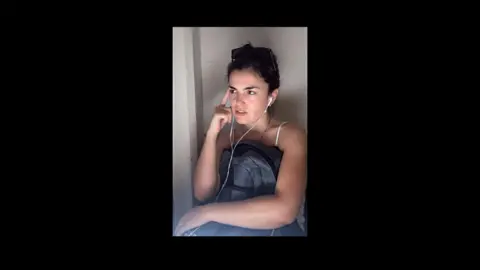 Patricia Franquesa
Patricia FranquesaBut stopping the hacker wasn’t his only motivation. “It was up to me to say ‘hey, contacts, this hacker has these photos, he’s using my contacts, help me’.”
This shifted the balance of power somewhat and allowed Franquesa to call on her friends and followers to help her paint a picture of the hacker and his behavior.
“That changes the formula,” she says. “I wanted my contacts to tell me when they would receive the photos, because then I would have more evidence to give to the police and keep the investigation open.
“It broke the shame,” she reflects. “The other person’s attempt to shame me is broken because I own my own photos. And then it magically stopped.”
The fact that the hacker stopped contact shortly after Franquesa uploaded the images suggests that it was someone who was already following her when she made her accounts private after the first blackmail attempt – but she didn’t Still don’t know who.
The documentary has been well received at the festivals where it has already been presented. Mark Adams of Business Doc Europe described it as “a powerful and provocative real-life story, presciently reflecting the sad reality faced by those people who are forced to confront the horrific behavior of unscrupulous hackers.”
“A bittersweet ending”
The man who physically stole the laptop was finally jailed. But for Franquesa, the main concern was less the laptop itself than how her own data was then used against her.
“He was sentenced to 10 months in prison, just for the theft of the computer. And I managed, in the judge’s sentence, to say that it is linked to possible blackmail,” explains- She.
Since then, Franquesa has focused on raising awareness about what happened and how these criminal networks operate.
“I told the police that the guy (who stole the laptop) knows what he did with the computer. And the police told me the computer was not going to be recovered, and I said, ‘I know that, but what are they doing?’ to do with the stolen devices?
“Because now there are a lot of mafias. In Spain you steal devices and sell them, then they go to people who hack the devices and take the data, find things and start blackmailing. I want to understand what this system is.
She emphasizes: “In my case, it’s not just about justice, because it’s a bit over for me, but it’s about the police understanding what happens in these kinds of cases. What is the system of these mafias? a police officer, I’d be super curious.”
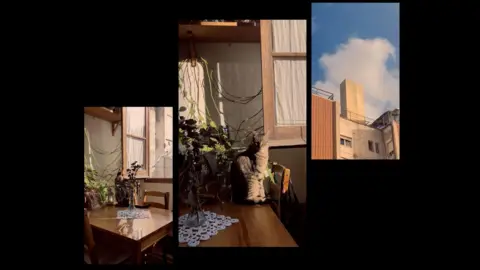 Patricia Franquesa
Patricia FranquesaThe biggest challenge was how to make something cinematic with so little material. Franquesa can only document her own version of the story, and most developments occur via written communications – emails from hackers, letters from the police, or messages between Franquesa and her friends.
The director “did not see it as a limitation” since the aim of the film was to be a “digital diary”.
Hackers are represented by a digitally altered female voice, while text conversations are represented by digital bubbles that mimic WhatsApp chat threads.
But it is “also this form of narration which does not allow the film to overstay its welcome, arriving at a tight time”, noted Blake Williams of the HyperReal Film Club.
“My Sextortion Diary is always captivating and finds a way to move the narrative forward despite its unconventional approach.”
The documentary ends before the sentencing, because, Franquesa laughs, “We had to finish the film in time for South by Southwest!” – the festival where the film was screened in March. She says new text will now be added at the end following the conviction.
Franquesa ultimately hopes the film will help bring about change, as she believes laws are not changing fast enough to keep pace with criminal behavior.
“I want to shout out that these laws aren’t working for our data. Our system that is supposed to protect us is moving so slowly. There is a problem here with the protections we have.
“The only satisfaction of this affair is that we are talking about it now, the end of the film is bittersweet, the success for Pati is to make the film, but the hacker and the justice are incomplete.”
She concludes: “I hope that my case will be used to understand what (the criminals) are doing. I am putting myself forward so that they can study my case and help other people.”


